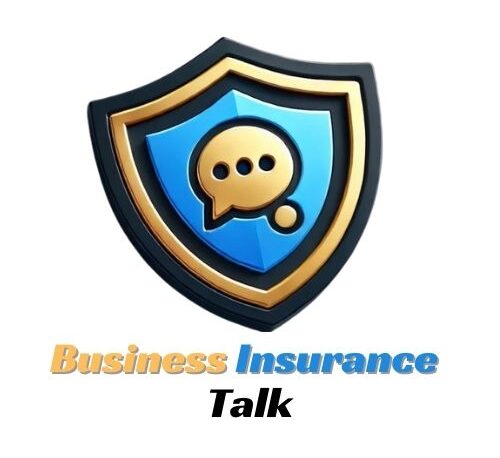How Much Is Business Insurance Cost? | Full Guide
Business insurance costs every business owner. USA needs to know about This type of coverage is created to safeguard your enterprise from numerous kinds of hazards. However, the price can vary a lot from one case to another.
Understanding these costs is crucial for determining the appropriate coverage for your business. This guide will enable you to have a clearer idea of your expectations. We’re breaking down the cost of business insurance so you can make an educated decision.
Key Takeaways
- Your assets are valuable; business insurance shields them.
- Different factors depend on various things, which will also vary, but cost.
- Budgeting for Insurance: Know How Much You Need and Why
- Comparison shopping among providers gives you the most competitive prices.
- Learn about better decisions about insurance coverage from the comparison of quotes.
What is business insurance?
Business insurance is the stability for a company during uncertain situations and financial risks. It protects them from liability, property damage, and other uncertainties. Business owners must have some knowledge about business insurance. It serves as a buffer in tough times.
What is business insurance?
Business insurance is a collection of policies to mitigate business risk. This includes the claims regarding injuries, theft, property, and so on. A robust insurance plan is key for businesses, whatever their size.
Different Varieties of Business Insurance
As a result, business insurance comes in several different flavors. Awareness of these assists business owners in choosing the appropriate policies. Here are some common ones:
General Liability Insurance covers bodily injury and property damage claims.
- Property Insurance: This protects tangible company assets from theft or fire, including buildings and equipment.
- Workplace Compensation: Provides coverage for employees injured on the job, fulfilling statutory requirements.
Small businesses must choose the right combination of these policies. All of them have their own unique function for maintaining stability in the business.
What Will Business Insurance Cost?
Understanding the Costs of Business Insurance Business owners need to know the cost of this type of insurance. Cost of business insurance varies, and it is due to different factors. These help businesses configure their budgets as well as the ideal coverage to purchase.
What factors determine how much a business pays for insurance?
There are a few factors that impact the cost of business insurance. These include:
- Size of the Business: Larger businesses usually have to pay higher premiums due to greater risk exposure.
- Business Type: Some business types have a higher risk profile; for instance, businesses in the construction industry may pay more for business insurance on average.
- Your location: If you live in a higher crime area or an area prone to extreme weather, your insurance prices might go up.
- Loss History: Businesses with a track record of frequent claims may face higher premiums.
Typical Rates for Various Types of Business Coverage
The average price of business insurance is different depending on the type. Here are examples of a few different types with their average place of expense:
- General Liability Insurance: $400–$1,500 per year on average.
- Average cost: Between $500 and $3,000 yearly based on profession Professional Liability Insurance
- Property Insurance: Insurance generally costs $1,000–$3,500 per year based on the value of the property.
- Workers Compensation Insurance—Typically, this will run somewhere in the region of $1,000 to $2,500 per employee per year.
Insurance Requirements for SMEs
SMBs/SMEs face their own set of challenges and risks. For owners, it makes it all the more important that they have the right coverage. They have peace of mind knowing they have the right coverage to protect them from unexpected events that may threaten to destroy their business.
The Importance of Insuring Your Small Business
There are several risks that small businesses are exposed to. Even one instance—a liability claim, damage to property, etc.—can impact their finances. For those owners without insurance, they may be on the hook for legal fees, repairs, or income loss due to surprise crackdowns.
Examples of insurance for small businesses
Insurance for small businesses comes in all shapes and sizes. Here are some common ones:
- Business Owner’s Policy (BOP): A blend of general liability and property insurance. It provides full coverage for startups.
- Professional Liability Insurance: This is the most important for any service-based business. It offers coverage against negligence or errors in professional services.
- Commercial Auto Insurance: This insurance applies if, for your business, you have vehicles that are used; it covers damages and events that are related to these vehicles.
Businesses need all the protection they can get, so if you are about to compare business insurance providers, here are some things you should know.
Selecting adequate business insurance seems like a high endeavor. Searching locally gives you access to agents who understand the market in your area. Conversely, online alternatives enable you to fuss over unlimited options with ease. So, you must understand which you prefer.
Book insurance near me for other kinds of businesses —House/Flat/Mortgage Twitter
Home insurance located within reach can go the distance to assist and cater to you one-on-one. Flexibility: Local agents usually offer face-to-face meetings, thus, they create trust. They also ensure that your concerns are taken seriously. To assist you in discovering the appropriate flexibility: Local following tips:
- Get recommendations from other local business owners
- Look for local chambers of commerce to create a list of credible agents.
- Gage how happy everyone else is by reading online reviews.
Insurance Agents: Online vs. Local
Leaving aside the convenience aspect, comparing insurance policies online saves lots of time as well. This way, you can at once see many quotes and many options. It enables you to easily compare coverage, costs, and exclusions. However, local advisers provide one-on-one guidance and assist with claims.
Keep in mind the following points when making a decision:
- Accessibility: Local agents have an immediate presence, while online services are available at all times.
- Familiarity: Local agents know local laws and the market.
- Price Comparison: When buying online, you can see a lot of prices and therefore companies all at once.

Selecting the Right Business Insurance
Finding the best insurance for your business is about considering your options. Having the details of each policy is critical. That can dramatically influence your business’s finances and risk management.
Evaluating Coverage Options
So, when you choose business insurance, choose carefully—be very careful with the coverage limits and exclusions. Think about these key points:
- Covered Amounts: Find out the maximum your insurer will pay for a claim.
- Exclusions: Know what’s not covered to prevent surprises when claiming
- Endorsements: Find out if you can expand your standard policies by adding endorsements to better suit your needs.
Finding Affordable Options
The trick to keeping costs low is finding inexpensive business insurance that provides good coverage. step is comparing the insurance companies and their coverage. Shop top insurers with online tools. Consider also their claims process from reviews of customers and their overall satisfaction.
It will help you to locate the most effective company insurance policy within your spending budget. It keeps your business safe from harm.
How Much Does Business Insurance Cost?
Business insurance is something all owners should understand. This matters because you need to know how they are categorized. Here, you’ll learn about how premiums are computed and what influences them. Owners, therefore, can make wise decisions cognizant of this fact.
How Premiums are Calculated
Insurers consider many factors when determining premiums. These include:
- Business Sector: Premium rates vary according to the risks faced by different sectors.
- Location: Where your business is located can influence risk due to crime or natural disasters.
- Employees: The more employees an employer has, the more opportunities there are for claims, thus costing the employer more money.
- Claims History: Companies with a high number of claims will have higher insurance premiums.
Higher coverage limits = higher premiums
Deductibles and coverage amounts are two different aspects of a health plan.
Business owners also want to take a close look at deductibles and coverage amounts. Deductible: This is the amount you pay before insurance kicks in. Deductibles are higher. → Lower premiums but higher costs when you claim.
Coverage limits represent the maximum amount an insurer may pay for a loss. Assessing your needs to protect your business. It prevents you from overpaying for unnecessary coverage.
Advantages of Holding Business Insurance
Business insurance has so many advantages for your corporation. This helps to keep your business safe and in good standing. Understanding how it works can provide some insight into its virtue to combat unpredictable issues.
Keeping Your Business Assets Safe & Secure
Business insurance is important for safeguarding your property against risks associated with theft, natural calamities, or legal suits. That helps in providing stability to your finances and ensuring your business keeps on running. Good insurance can protect you from losing your equipment, stock, and other essentials.
It means you can grow your business without risking it all. It’s a big relief.
Establishing Trust and Credibility with Clients
Besides the trust of your customer, you can build it by insurance too. Having coverage can make them more comfortable purchasing from you. That added trust spurs more business, and happy customers spread the word about you. business,
When you invest in an insurance plan, you display reliability. That notion is key in today’s market.
10 Mistakes to Avoid When Buying Business Insurance
Industry journals assert that business insurance is the lifeblood of every organization since its primary purpose is to safeguard its assets, an organization بحاجة to remain balanced. However, a lot of company owners have misconceptions regarding it. This often results in their inability to make optimal decisions. These common myths will help in clarifying what business policy means.
Myth vs Reality: The Cost Of Business Insurance
A lot of people believe that the price of business insurance is very high. Many are worrying about cutting in their pocket. However, insurance costs are, of course, just like any other business cost. How much you pay depends on factors such as your business type, size, and coverage requirements.
Business insurance costs too much. Myth #1
The truth: Costs can differ greatly based on your organization’s needs. There is almost always something available at your price point.
- Myth: All policies are treated equally
- Myth: All policies provide the same coverage. That is to say, you can get one tailored for you alone.
- MYTH: Business insurance is difficult to get.
- Myth 4: Insurance is hard to find. Reality: If you do a bit of homework and have the right tips at your disposal, it can be much easier than you think.
Here’s how to put that information to use in a more productive manner and save money on insurance. It gives business owners additional confidence to find the appropriate coverage.
How to Buy Business Insurance Online
Following these few simple steps can make buying business insurance online easy, too. Very convenient and a lot of ground for different needs. This is how to navigate the world of insurance online.
Step-by-step Guide For Buying Business Insurance
- Explore Different Coverage Options: Start by searching online for comprehensive coverage options for business insurance. Discover the ones that suit your business the best.
- Collect Quotes: Online tools help you get quotes from a variety of suppliers. This allows you to view pricing and coverage.
- Terms and conditions: For each policy, review the terms. Knowing that—what you are getting and whatnot—is significant.
- Consult Experts if You Need: If you are confused, you will have an option to consult insurance agents online. They can help clear any of your questions.
- Step 4: Complete the Purchase: After you have decided upon your purchase, make the purchase online. Be sure to complete the application properly.
Straightforward Steps to Take with Business Insurance
Understanding the fundamentals of business insurance puts owners in a better decision-making position. When you’re considering standalone personal liability coverage, some basic rules can help you choose the right option. They also make sure that you are protecting your business.
The Ins and Outs of Simply Business Insurance
Start by identifying what threats your business is exposed to. Consider your region, sector, and scale. Understanding your risks guides you to appropriate coverage
- Assess your exposure: Identify what physical and non-physical assets require protection.
- Explore different types of insurance: Research your typical, i.e., general liability, commercial property, and workers compensation.
- Opt for professional advice: Discuss your needs with an insurance agent or broker to learn more about the available policies.
- Review coverage limits—Ensure that your policy covers the cost of replacing or restoring assets if necessary.
Tip: As your business changes over time, your insurance needs will also change. So, make sure to review them; no gaps should pen to avoid future hassle.

Business Insurance Costs (With Real-Life Examples)
If you are like many business owners, determining how much you should be spending on business insurance can be daunting. Real-life examples help us understand how different industries manage these costs. Furthermore, with case studies, business owners can learn about possible insurance costs that would affect their types of businesses.
Industry-Specific Case Studies
Various points of business insurance are disclosed in the event study. Here are some examples:
A Chicago-based clothing boutique pays approximately $1,200 per year for general liability insurance. It covers accidental damage or injury to people while on site and is consistent with what similar retail establishments pay.
Construction: An average-sized construction business pays $8,000 per year for a packaged policy that includes general liability, worker’s compensation, and commercial auto. The premium is higher since construction is riskier work.
Technology Industry | Tech Startup | Professional Liability Cost: About $2,500 annually, such as the potential claim costs associated with errors in service delivery, which is very much the nature of tech work.
The following real-life examples illustrate how business insurance pricing from industry to industry is not the same. They aid business owners in projecting their expenditures in this important facet of financials.
Industry traits along with the impact they have on your business insurance costs
Business insurance costs depend on the type of business. With each industry come inherent risks and challenges. This translates into different prices for insurance based on the sector. This knowledge leads business owners to choose appropriate coverage.
Sector-induced Requirements for Coverage
This means each industry requires its insurance policy. Construction work is exposed to risks related to physical work and machines, for example. As a result, it drives up the costs of workers’ compensation and general liability insurance.
The healthcare industry revolves around patient care and data security. That requires extensive professional liability and cyber insurance. Retailers—They are technically lower risk but still cover some inventory and theft risk.
- Construction: Higher premiums for physically intensive work with tools and machinery.
- Healthcare: Increased costs associated with malpractice and patient data protection
- Retail: Paying for stock and the opportunity to shoplift can impact insurance rates.
Grasping the influence of industries on insurance rates allows owners to select wisely. This will enable them to budget and plan their coverage well.
Evaluating Business Insurance Quotes
What to look for in business insurance quotes. No two businesses are created equal, nor will their insurance quotes be the same. Having a clear idea of what you need will not only save you time but also cash, as you will settle for the right coverage.
What to Look for in a Quote
Here are some simple steps to follow when reviewing business insurance quotes. The following are the key points to note:
- Types of Coverage: Check what each quote includes. Is it damage to property, liability, or injuries to employees? Make sure that it is right for your business.
- Costs: Consider the prices and deductibles. Bargains come with a cost—usually higher deductibles or less coverage.
- Check on Insurer Reputation: Research the financial state of the insurance company and the customer service of the company. Some of the most well-known companies are State Farm and Allstate, as they usually provide you with good service, plus they take care of your claims.
- Exclusions: Every plan has what it does not cover. Read these to avoid getting blindsided.
- Customer testimonials: Find out what other business owners think. Their experiences can assist you in selecting the appropriate insurer.
But if you do so in a way that forces you to pay attention to the business insurance quotes and especially the details, that leads to more informative—and ultimately better—decision-making. This guarantees that you are informed and get the appropriate protection.
Conclusion
Knowing how much business insurance costs is an important matter. These follow some forms of coverage, such as general liability, property, etc. They reflect the varying risks that business insurance faces today.
There are a number of factors that play a significant role in business insurance prices. For example, the industry and the size of the company. Understanding these can help you choose the best for your business.
You must have the appropriate business insurance policy. Not only does it protect all your assets, but it also adds more credibility to your business. You can read about potential issues with your business simply by choosing your insurance process.
FAQ: How much is business insurance
What is the average cost of business insurance?
There is a great deal of income variability regarding business insurance prices. But it could vary based on the coverage you want, the size of your business, your industry, and its location. The average small business can expect to spend between $400 and $1,500 annually on a basic insurance policy.
What Kind of Business Insurance Is There?
Business insurance comes in various types: general liability, property, workers’ comp, professional liability, and business interruption insurance. These protect your company for differing reasons.
Question: Why do small businesses require business insurance?
Small businesses are brittle; they face all kinds of risks. Insurance shields them from financial losses following accidents, theft, or legal issues. It gives business owners the chance to get on with their work instead of worrying about single, large financial disasters.
Where can I find business insurance near me?
Search online for insurance providers within your locality. You may also make use of local agents or search directories. Consult other businesses about whom they recommend for insurance.
What To Look For In A Business Insurance Quote
Examine the coverage, deductibles, limits, and exclusions in a quote. The responsibility should certainly not be placed on some new kind of unscrupulous insurer that you are giving your business to without checking their reputation or how they handle claims. That way, they will remain present for you, whenever you need them to be.
Are you able to shop for small business insurance online?
You can certainly purchase business insurance online. This makes it easy to research, compare, and buy policies through websites. Perfect for busy entrepreneurs.
Q. What are some of the common myths related to the cost of business insurance?
Others believe business insurance is excessive or even unnecessary. However, a good policy can save you from huge financial losses. There are a lot of cheap alternatives available.
What do businesses then have to pay for this insurance in premiums?
Your business size, type, industry, claims history, where it operates, and coverage limits all contribute to premiums. Also, knowing these factors supplements you in estimating costs better.
How do I know that I am doing the best for my business insurance?
To find the best insurance, know what you want to insure, compare quotes, and speak with local agents. They will assist you in locating a suitable policy for your business.

